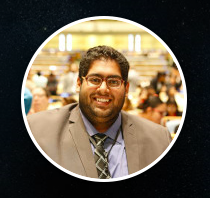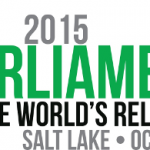May Day/International Worker’s Day (May 1)
Originated in the U.S. on May 1, 1886. On that day, more than 300,000 workers walked off their job sites in observance. The coordinated effort was spear headed in Chicago by the Federation of Organized Trades & Labor Unions, which had proclaimed that eight hours a day should constitute a work day. An extreme cut from the 10 to 16 hour days that was common for the working class at that time. Learn more>>
Since my husband is a worker/owner of a co-operative bakery, we typically spend the day at a local park with his colleagues. The bakery is closed so that everyone can enjoy a day in the sun, typically with barbecue, beer and kickball. It is because of the labor unions and protestors of the 1880s and beyond that many people are able to enjoy an 8 hour work day and 2 day weekends. So we honor the memory of those who came before us, by enjoying what they fought for, a day off!
Another way to observe this day would be to continue the fight for better work environments locally and abroad. This particular year, the peaceful May Day protests, in my city of Oakland, intersected with the Black Lives Matter and anti-gentrification campaigns. People marched, the Port of Oakland was shut down, and even tech busses were blocked.
In light of the most recent violent terrorist attack in Charleston, South Carolina, it seems pertinent that I speak to the importance of Memorial Day.
Memorial Day, formerly known as Decoration Day (Last Monday of May)
The Northern Civil War veterans called for a nationwide day of remembrance on May 30th, 1868. The first so-called ‘Decoration Day’ was spent decorating the graves of soldiers who died in defense of their country. Although the honoring of military lives is a practice that goes back hundreds and thousands of years, the activity was formalized by the federal creation of ‘Memorial Day.’
A touching story from the historic city of Charleston. According to the Smithsonian Institute:
“One of the most important antecedents of the modern Memorial Day was a Decoration Day organized by freedman’s relief organizations and formerly enslaved people in Charleston, South Carolina, on May 1, 1865. One of a series of celebrations in the destroyed city to mark the end of the war, this event was orchestrated by the African American citizens of Charleston to mark and decorate the graves of the 257 Union prisoners who died at the Charleston Race Course, which had been converted to a Confederate prison. Thousands of freedmen, including almost 3,000 black schoolchildren, gathered to decorate the graves with flowers and beautify the graveyard, building an enclosure and an arch labeled, “Martyrs of the Race Course” in what is now Hampton Park.” According to David Blight, author of Race & Reunion: The Civil War in American Memory, also held a ceremony to rededicate the cemetery, after properly reburying hundreds of Union dead found there.
Memorial Day has come and gone this year, but in recent days we’ve seen how the tragedy and the state of mourning in Charleston, has opened up a chance to revisit a national dialogue on gun violence and racism. Organizers have used this space to honor the memories of those lost in the Emanuel African Methodist Episcopal Church shooting, and then also demand action on issues of gun safety, racism and the legacy of the Confederate flag.
Loving Day (June 12)
An annual celebration held on the anniversary of the 1967 U.S. Supreme Court decision on Loving v. Virginia. On June 12th of that year, all anti-miscegenation laws were struck down. Such laws enforced racial segregation at the level of marriage and intimate relationships by criminalizing interracial marriage and sometimes also sex between members of different races. More than 16 states, predominately in the Southern U.S., still had such laws in place.
Mildred Jeter and Richard Loving fell in love and were married in Washington DC in 1958, since their home state of Virginia still enforced anti-miscegnation laws. The Virginia law also forbade interracial couples from getting married elsewhere, so the Lovings were living unlawfully. While they lay asleep in bed one night, they were awaken by police who then took them to jail. They were later found guilty at trial and sentenced to 3 years in prison. However, the judge said he would forego imprisonment if the couple chose to leave the state for a period of 25 years. Learn More>>
Loving Day is not widely celebrated, but likely should be, and as a person of mixed race, it is significant to me. In fact, I see it as an extension of belief and hope in marriage equality for all. It is a common phrase that “love knows no boundaries,” yet in the U.S. and other countries, interracial marriage continues to be looked down upon. In some countries it may still be illegal. But then I think of LGBTQI persons in many U.S. states who are still restricted from marrying their loved one. The struggle for equality for all continues, so milestones such as the Loving’ case should be observed.
Juneteenth (June 19th)
On June 19th, 1865 (150 years ago), all slaves were freed in the state of Texas. It took the state 2.5 years after President Abraham Lincoln’s Emancipation Proclamation to act on the ruling. This was possibly due to the lack of union soldiers available to enforce the law, while others say it was due to the timing of the cotton crop. Nonetheless, the day of freedom has been observed ever since. In In 1980, Juneteenth became a state holiday in Texas, and is officially observed in 43 states. “Juneteenth is not just about slavery—it’s about freedom. When you focus on freedom, it’s about everybody.” – Sam Collins, owner of Stringfellow Orchards in Galveston, Texas. A plantation once owned by Confederate soldier Henry Stringfellow. Learn more>>
Another day of significance in American history that has yet to be fully mainstreamed. In observance of this day, secular communities could show their support for current initiatives aimed at abolishing slave labor and human trafficking. Groups could take this opportunity to educate themselves and others on modern day slavery, or even take a historical tour to learn its dark history in the U.S.
By now, you have probably realized that I am somewhat adamant about living out my humanist values, and putting those beliefs into action. Not everyone shares this particular outlook, and that is alright. But I wrote this blog as a simple reminder to myself and the greater secular community, that there is so much to be thankful for. Also, I enjoy a festive party, of which any of the above named celebrations can and should include. So as you plan for your year ahead, consider how your values can be lived out through some or all of these special observances.















